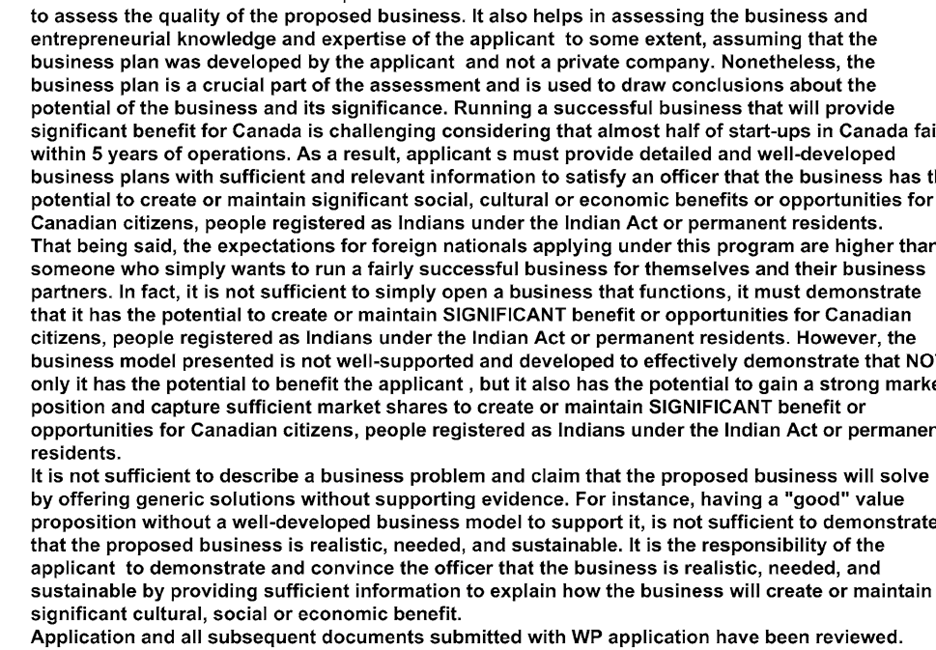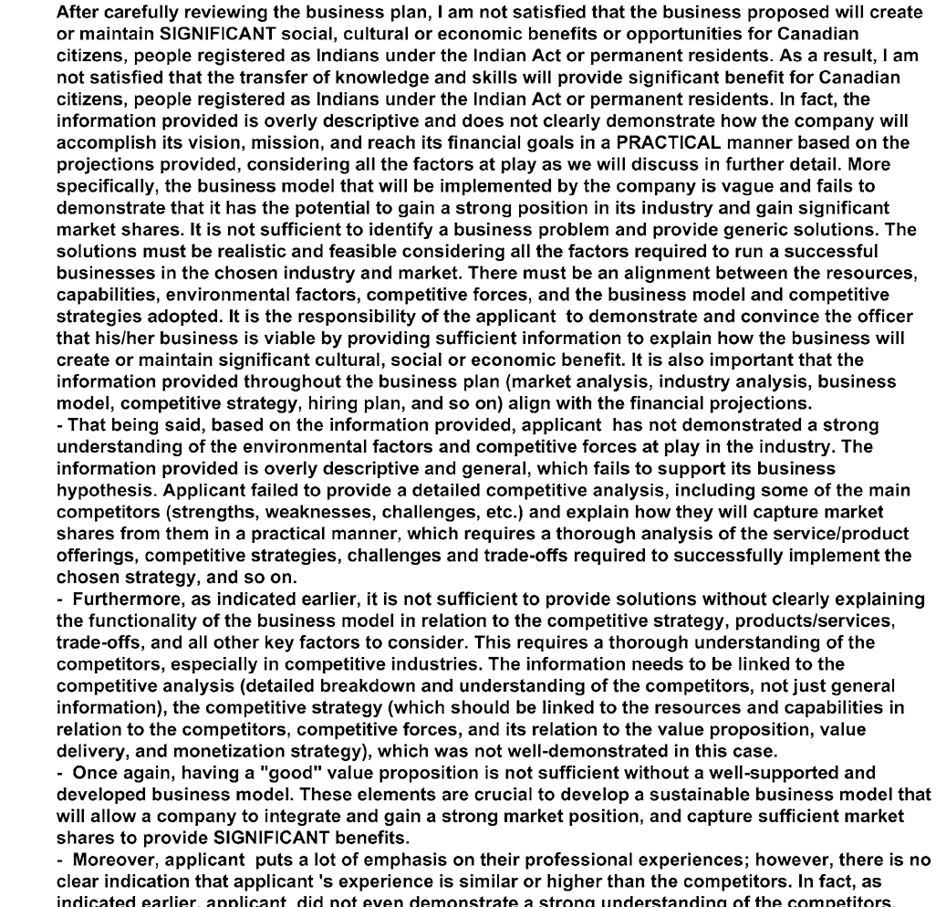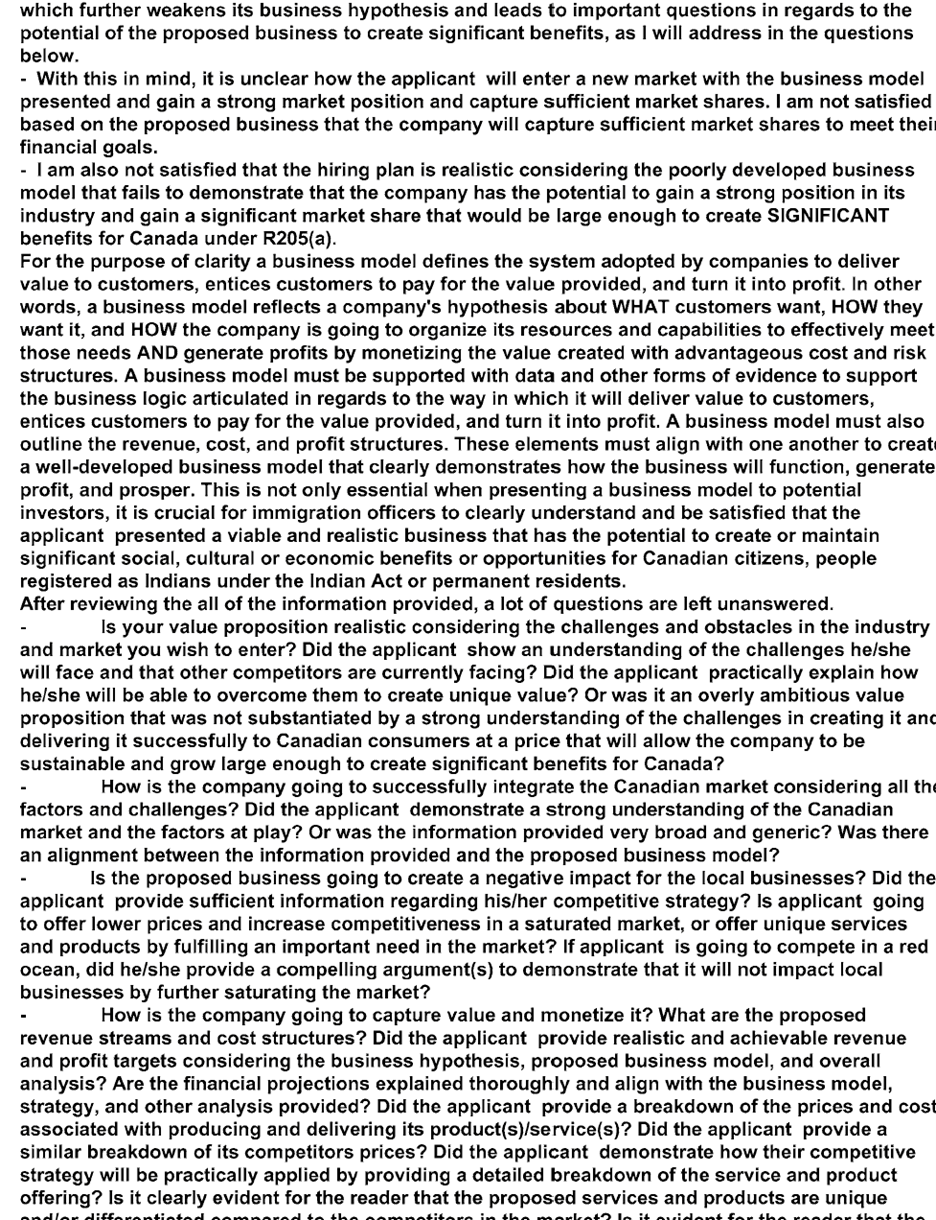Home » News & Insights » The New Reality: Navigating Rising IRCC Refusal Rates in 2025
A colleague recently shared eye-opening statistics on IRCC application approval rates for January through April 2025. The numbers paint a concerning picture for immigration practitioners and applicants alike. These figures reveal a dramatic shift in Canada’s immigration landscape that demands immediate attention and strategic adaptation.
IRCC Approval Rates: A Statistical Overview

The data reveals some striking trends across various immigration programs: approval rates are dropping, and refusals are on the rise. Here are some notable figures:
Approval Rates for Temporary Residence Programs (January-April 2025)
- LMIA-based work permits: 69%
- LMIA-exempt work permits: 69%
- Start-up Visa Work Permits: 23%
- Work Permit Extensions: 49%
- Start-up Visa Work Permit extensions: 83%
- Study Permits: 32%
- Visitor Visas (incl. business visitors): 48%
Approval rates for Permanent Residence Programs:
- Express Entry (Canadian Experience Class): 94%
- Express Entry: Federal Skilled Worker Program: 78%
- Start-up Visa Program: 23%
- Self-Employed Class: 32%
- Quebec Business Class: 51%
- Parents & Grandparents: 82%
- Humanitarian & Compassionate: 23%
These statistics represent a significant departure from historical norms, and Sobirovs Law Firm has noticed these downward trends in our own caseload.
The question that emerges is not just what these numbers mean, but why this is happening and, most importantly, what practitioners and applicants can do to adapt to this new reality.
Understanding the Why Approval Rates are Dropping: Four Key Factors Behind the Decline
1. Policy Shifts and Strategic Refocusing
IRCC clearly prioritizes economic immigration while simultaneously working to reduce the overall number of foreign nationals in Canada.
This strategic pivot is evidenced by several key indicators:
- The exceptionally low study permit approval rate of 32% signals a deliberate effort to limit temporary residents who might later transition to permanent status. Conversely, the robust 94% approval rate for Canadian Experience Class applications demonstrates IRCC’s preference for foreign nationals who already have Canadian experience and integration.
- The 49% approval rate for work permit extensions is particularly telling. This suggests that those wishing to remain in Canada face increased scrutiny regarding their ties to their home country. Unless applicants can demonstrate compelling and legitimate reasons for staying, their applications are increasingly likely to be refused.
- While still strong, the Federal Skilled Worker Program’s 78% approval rate reflects IRCC’s continued focus on economic immigrants who can contribute immediately to Canada’s economy, including those selected through Provincial Nominee Programs.
2. The Rise of AI in the IRCC Decision-Making
IRCC has increasingly integrated artificial intelligence tools to assist officers in processing applications. While this technology can enhance efficiency, it has also introduced new challenges and, frankly, some absurd reasons for refusal.
Complex cases that traditionally required nuanced human judgment are now often processed through AI-assisted decision-making. Overworked officers, facing enormous backlogs, may rely heavily on AI-generated summaries rather than conducting thorough manual reviews. This has led to a noticeable change in refusal letters – instead of the traditional 2-3 paragraph explanations, we’re now seeing 3-page AI-generated decisions that often miss crucial nuances of individual cases. See below one of such decisions, which I can confidently say was generated by AI.
3. Quotas & Resource Allocations
Immigration processing and approval rates appear to be influenced by the number of resources IRCC assigns to the program, creating dramatic fluctuations in approval rates that have little to do with application quality and merit.
This resource-driven approach was starkly demonstrated in late 2023 to 2024, when the government prioritized backlog reduction and directed substantial resources to certain programs. During this period, some programs saw approval rates exceeding 90% in multiple months. However, when fewer resources are allocated or political priorities shift, approval rates fall steeply – as we’re witnessing across multiple programs in 2025.
4. Errors and System Overload
We must also acknowledge that officers are human and, given the current system pressures, are prone to making mistakes. The combination of application backlogs, high volumes, potentially inadequate training, and sometimes poor document presentation by applicants creates a perfect storm for erroneous decisions.
A recent example from our practice illustrates this point perfectly: one of our Start-up Visa applicants was refused an open work permit with the explanation that “your spouse does not have a valid study permit in Canada” – even though the applicant was applying to come to Canada as a start-up founder. Such obvious errors highlight the challenges within the current IRCC system.
Adapting to the New Era: Strategic Responses to Low Approval Rates
1. Evidence-Based Advocacy with Clear Documentation
In this new environment, practitioners must double down on evidence presentation and make applications as clear as possible for both human officers and AI systems. This means including detailed cover pages that explicitly explain what each piece of evidence establishes.
For example, rather than simply including a bank statement, provide a cover page stating: “Applicant’s bank statement for the past 6 months demonstrating a balance of $X. This establishes that the applicant has sufficient funds to launch and operate his business in Canada.”
This approach can help both AI tools and busy officers immediately understand the relevance and significance of each document.
2. Optimizing Applications for AI Processing
While this may be an unpopular concept among some colleagues, the reality is that legal service providers must now factor AI into application preparation. When business plans are being read and analyzed by AI systems, we should adapt our approach accordingly.
For example, in our law firm, we’ve developed a custom AI system trained on IRCC’s standards and guidelines that reads and scrutinizes business plans for compliance before submission. We’ve shifted from preparing applications primarily for potential Federal Court review to optimizing files for AI processing – this is the new reality in Canada’s immigration law.
3. Strategic Response to Refusals
When applications are refused, the traditional approach of requesting reconsideration appears to be largely ineffective. IRCC seems to have quietly instructed officers to ignore most reconsideration requests. While Federal Court challenges remain an option, they are costly, lengthy, and often ineffective for many applicants.
In most cases, the most practical remedy is to reapply with enhanced evidence and improved presentation. Always request ATIP (Access to Information and Privacy) notes to understand the specific reasons for refusal, then address those concerns comprehensively in the new application.
Officers are increasingly using the “significant benefits” assessment to deny applications across various programs. Practitioners must focus on strengthening responses to the most cited reasons for refusal and ensure their applications can pass both AI triaging and human scrutiny.
Moving Forward: The New Standards
The current environment demands more preparation, strategic evidence presentation, and patience from both practitioners and applicants.
Success in this new landscape requires:
- Comprehensive documentation with clear explanations for each piece of evidence
- AI-optimized presentation that ensures key information is immediately accessible
- Strategic reapplication when refusals occur, with enhanced evidence addressing specific concerns
- Realistic expectations about processing times and approval rates
The statistics we’re seeing represent more than just numbers – they reflect a fundamental shift in how Canada is approaching immigration. While challenging, this new reality is not insurmountable. The key is recognizing that the old ways of doing things may no longer be sufficient. In this era of AI-assisted decision-making and strategic policy shifts, success belongs to those who can adapt their approach while maintaining the highest standards of legal practice and client advocacy. By understanding the underlying factors driving these changes and adapting accordingly, we can continue to successfully navigate the immigration system and achieve positive outcomes for our clients.
Annex 1. The actual decision that we received for one of our clients. Reasons appear to be written by AI.



About the Author
Feruza Djamalova is a licensed Canadian immigration lawyer at Sobirovs Law Firm, a boutique practice dedicated to helping business owners, entrepreneurs, and international students build their future in Canada. Since 2012, she has guided hundreds of clients through complex immigration pathways, including the Alberta Graduate Entrepreneur Stream, Provincial Nominee Programs, and the Start-Up Visa.
Feruza is widely recognized for her clear, practical approach to immigration law. She has been featured in leading publications such as TechCrunch and Forbes for her insights on business immigration and global talent mobility. Clients value her transparency, empathy, and strategic advice, which help them navigate the challenges of entrepreneurship and immigration with confidence.
Make Your First Step Towards Canada
Boilerplate Visa Refusals: How to Deal With Them
Introduction Recently, I’ve noticed a troubling pattern in immigration decisions. Both in federal court cases and in my immigration practice, officers are increasingly refusing applications...Our Clients Say…
Posted onTrustindex verifies that the original source of the review is Google. Posted onTrustindex verifies that the original source of the review is Google. I reached out to Sobirovs Law Firm for a consultation regarding the OINP program after facing issues with another provider who incorrectly determined my NOC and created complications in my PR process. I had a consultation with Mariam, and I’m truly glad I did. She helped calm me down, explained that the issue can be resolved without negative downstream risks — but also clearly outlined why urgency is required. We also discussed alternative business immigration options. I left the consultation knowing exactly what to do next, without feeling overwhelmed. It’s extremely valuable when a professional can explain complex immigration matters in simple terms and provide clear, concrete action steps. Highly recommend Sobirovs for anyone navigating business or provincial immigration challenges.Posted onTrustindex verifies that the original source of the review is Google. I have taken the services of Sobirov Law Firm for my Canadian immigration process, and I must say they have been exceptional, professional, and truly dedicated from the very beginning. My case was quite complicated, yet their team handled it so smoothly, efficiently, and with such a remarkable expertise which was far beyond my expectations. Thanks to their due diligence, guidance, and constant support, I and my family have successfully obtained our Canadian work permits, and we are now keeping our fingers crossed for our Permanent Residency approval. I am deeply grateful to the way they take attention to your details, their transparent communication, and genuine care throughout the process. I strongly believe that Sobirov Law Firm stands out not only for their legal excellence but also for their human approach and commitment to their clients’ success, even if your visa is refused initially, they dedicatedly pursue your case and make sure that a positive outcome is received on your application. I can confidently recommend Sobirov Law Firm to anyone seeking reliable, result-oriented, and professional immigration assistance. I feel if you take their services, you can be confident that your case is in safe, capable, and caring hands. And most importantly, I can't thank enough to Feruza and Judy. Ms. Feruza, my immigration lawyer, and Ms. Judy, her assistant, who have been pivotal in the success of my application. Their expert guidance, prompt communication, and attention to every detail made a complex process feel seamless and well-managed. Deeply indebted to Feruza, Judy and the entire team of Sobirov Law FirmPosted onTrustindex verifies that the original source of the review is Google. Each aspect of the service provided by Sobirovs Law Firm was done with meticulous precision, which made me very satisfied working with this law firm. I am so grateful to have received your service. I truly recommend this firm to anyone in need of professional help with their immigration journey to Canada.Posted onTrustindex verifies that the original source of the review is Google. We would like to express our heartfelt gratitude to Sobirovs Law Firm once again for their outstanding support in renewing our C11 work permit during a particularly challenging period in Canada’s immigration process. A special thank you to Feruza, Madina, and the entire Sobirovs team for their professionalism, patience, and genuine empathy throughout the journey. Their clear guidance, timely communication, and deep understanding of immigration complexities made a stressful process much more manageable. We truly appreciate the dedication and care they showed at every step — it reflected not just expertise, but a sincere commitment to their clients’ success. We would highly recommend Sobirovs Law Firm to anyone seeking trustworthy and compassionate immigration professionals in Canada.Posted onTrustindex verifies that the original source of the review is Google. My wife and I needed guidance with immigrating to Canada. Sobirovs Law Firm was quick to respond, explained our options clearly, and assisted with the required documentation and organization of the documents to make our transition smooth, which it was. The only hiccup in our transition to Canada came with an unscrupulous moving company that attempted to hold all our contents' hostage. In a bit of a panic, I called Sobirovs Law Firm and they paid a visit to the shipping warehouse, confirmed my contents were present, observed a rescaling (saving me $1,500... the trucking company lied about the weight), and acted as an escrow service, to ensure my contents arrived to their final destination prior to releasing funds to the moving company. They went beyond the call of duty for us, I can't thank them enough, and I'm not sure what I would have done without their assistance.Posted onTrustindex verifies that the original source of the review is Google. I highly recommend Sobirovs Law Firm as your business Immigration Lawyer. If you need a Professional Lawyer for expending your business in Canada, Mrs. Feruza and her Team will be your best choice. Thanks very much for your support, Mrs. Feruza and Sobirovs Team.Posted onTrustindex verifies that the original source of the review is Google. I would like to extend my sincere gratitude for your exceptional guidance and dedication throughout my application process. Your professionalism, expertise, and attention to detail made what could have been a stressful experience much smoother and more manageable . I would recommend Sobirovs Law Firm 11 out of 10. They truly care for your best interests. They worked hard and diligently on my case and I’m sure they would for everyone’s case. They are an awesome company and I would use them again if needed and refer them to everyone I know ! Best Regards Ellafi Lajhar LajhargroupPosted onTrustindex verifies that the original source of the review is Google. We had a great experience working with Sobirov law firm. They have experienced lawyers, very diligent and accommodated our quick time frame. It was a pleasure working with them and would highly recommend them.Posted onTrustindex verifies that the original source of the review is Google. I highly recommend Sobirovs for Work Permit for these key reasons: - Professionalism from start to completion - Reasonable fees - Responsive - Great lawyer and support staff I want to send special thanks to Feruza , Vie, Owen, Judy and Madina for working on my work permit. They work hard and to achieve the best outcomes for their clients.Verified by TrustindexTrustindex verified badge is the Universal Symbol of Trust. Only the greatest companies can get the verified badge who has a review score above 4.5, based on customer reviews over the past 12 months. Read more

















